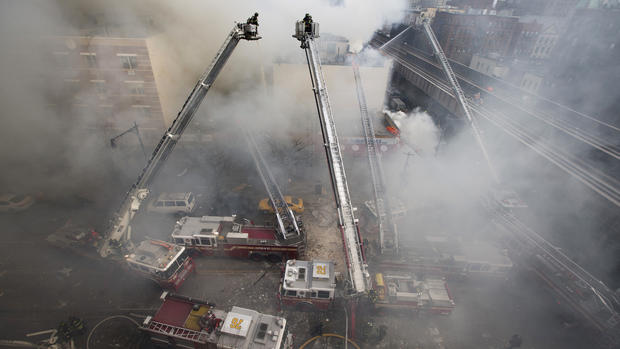America's infrastructure dilemma
Several days after a massive explosion destroyed two buildings in the Harlem section of New York City last week, killing eight people and injuring more than 60 others, investigators said they found a high concentration of natural gas near the scene of the disaster.
At the same time, a member of the National Transportation Safety Board said workers were examining a cast-iron gas pipe, located under the explosion site, that dated back to 1887. The official added that the age of the pipe might not be a factor in the accident, but the fact that a 127-year-old pipe is being used to transport natural gas under a major American city has drawn new attention to the issue of the nation's deteriorating infrastructure.
"We must commit...to investing in modern, efficient infrastructure systems to position the U.S. for economic prosperity," ASCE President Gregory DiLoreto said at the time. "Infrastructure can either be the engine for long-term economic growth and employment, or, it can jeopardize our nation's standing if poor roads, deficient bridges, and failing waterways continue to hurt our economy."
Another annual survey, the World Economic Forum's Global Competitiveness Report, puts the U.S. fifth out of 148 world economies in terms of competitiveness, but 19th when it comes to the quality of overall infrastructure.
Martin Wachs, Professor Emeritus of Urban Planning and Civil Engineering at UCLA, said we should remember that a lot of America's infrastructure -- such as the national highway system -- is reaching middle or old age and needs to be maintained. The problem, he noted, is the country and its lawmakers appear more interested in expanding current infrastructure than maintaining what already exists.
Incidents like the New York explosion, while tragic and dramatic, occur infrequently, but the interest in new products, like a new oil pipeline, is constant. "Just like with a household budget," Wachs notes, "if you want the shiny new car...you're willing to put up with the aging refrigerator until it breaks. It's just human nature to focus on what is new and what can be added to our infrastructure."
The tragedy in Harlem illustrates that we ignore our aging infrastructure at our peril, and with the understanding that even small problems can end up costing us personally. Wachs notes a recent incident one night, where he drove his car into a pothole - blowing out the tire and bending the rim.
"And it was several hundred dollars of costs which I bore," he says. "That was the result of the city in which I live not having the resources, or not spending the money, to fix the pothole. So we pay for it, ultimately."
